Election fraud: Politically correct sentiment a problem, report says
- Published
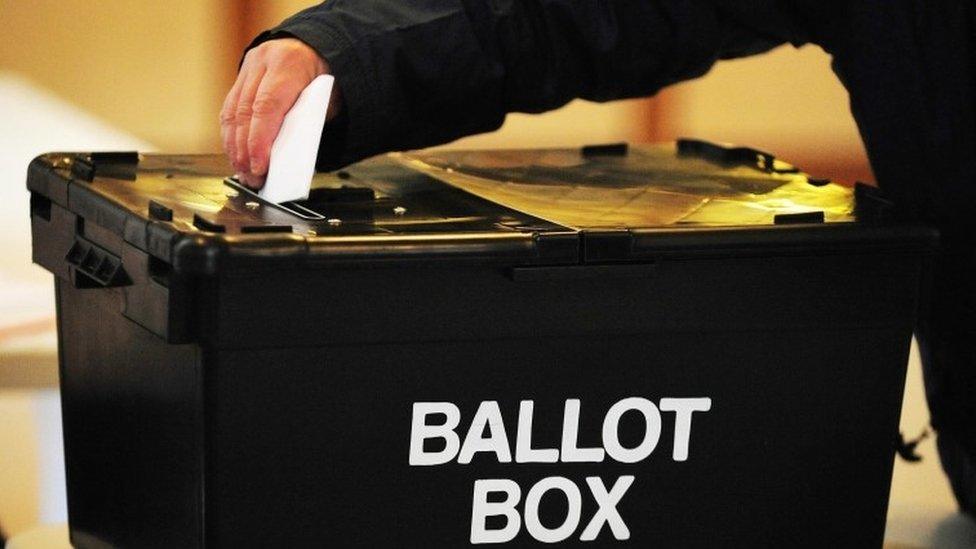
Authorities are turning a blind eye to electoral corruption in the UK because of a desire for political correctness, a report on the issue has suggested.
Former communities secretary Sir Eric Pickles said fraud may be overlooked because of "over-sensitivities about ethnicity and religion".
He also said voters should provide proof of identity at polling stations.
His review was commissioned by David Cameron in the wake of the Tower Hamlets election fraud scandal in 2015.
In Sir Eric's report, which took 12 months to complete, he argues that "politically correct sensibilities" meant a blind eye was too often turned to voting irregularities in Pakistani or Bangladeshi communities in particular.
Rushanara Ali, Labour MP for Bethnal Green and Bow, acknowledged there had been "major issues" in Tower Hamlets which electoral officials "lack the confidence and expertise" to confront.
"The communities affected are often the victims, being targeted by unscrupulous individuals," she said, calling for greater powers to be given to the "toothless" Electoral Commission.
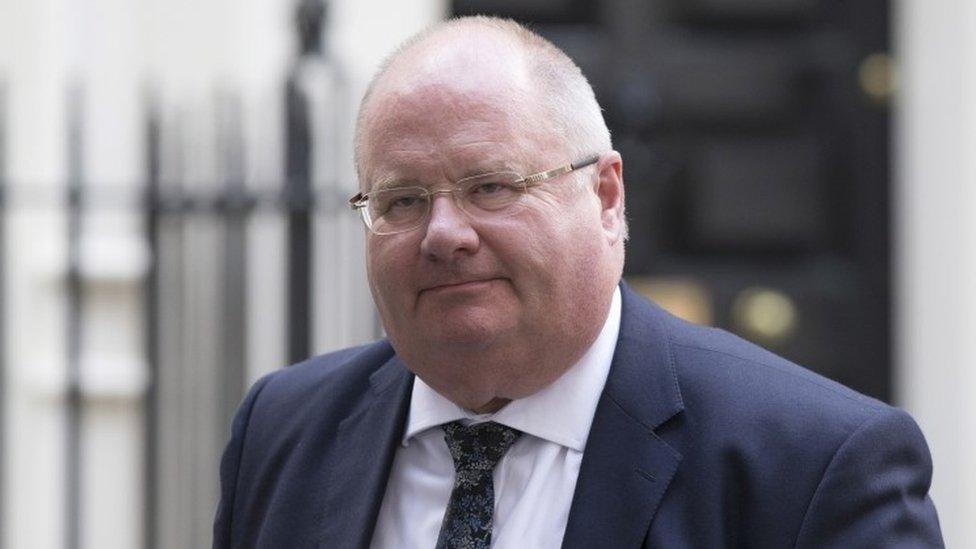
Sir Eric's report is the first of its kind to investigate election fraud in the UK
Sir Eric's report said he had seen evidence of "pressure being put on vulnerable members of some ethnic minority communities, particularly women and young people, to vote according to the will of the elders, especially in communities of Pakistani and Bangladeshi background.
"There were concerns that influence and intimidation within households may not be reported, and that state institutions had turned a blind eye to such behaviour because of 'politically correct' over-sensitivities about ethnicity and religion."
Among his 50 recommendations are:
Banning political activists from handling postal ballot papers
Police cordons around polling stations if there is the prospect of intimidation
The abolition of 'permanent' postal votes, to ensure that the ballot papers are only sent to electors who still reside at their address
A new role for the National Crime Agency to tackle complex election fraud cases
The Electoral Commission said it took "electoral fraud extremely seriously" and urged the government to "finally respond" to recommendations it has previously made including a call for voter ID.
Cabinet Office Minister Chris Skidmore said "the government is determined to ensure that the electoral register is as complete and accurate as possible", and promised to look "closely" at Sir Eric's proposals.
'Insufficient evidence'
In an Election Court hearing last year Lutfur Rahman was found guilty of election fraud, and was subsequently forced to step down as the mayor of Tower Hamlets in east London.
Mr Rahman was accused of using "corrupt and illegal practices", and Election Commissioner Richard Mawrey made findings during the trial to suggest that grants had been given to Bangladeshi or Muslim groups in return for support.
Mr Mawrey - who sat as a judge - said Mr Rahman, who has previously denied any wrongdoing, had "driven a coach and horses through election law and didn't care".
However, earlier this year a Met Police investigation concluded it had found "insufficient evidence" that any criminal offences were committed.
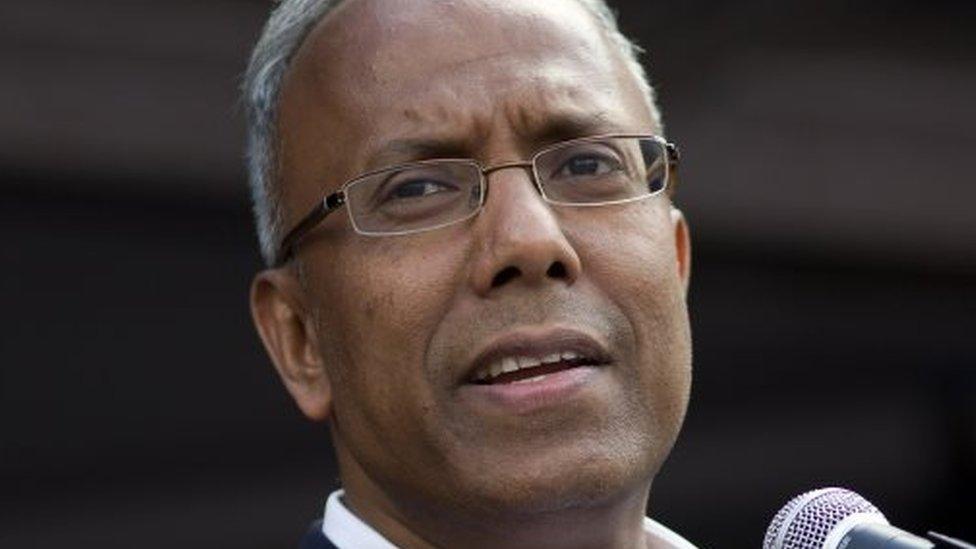
Lutfur Rahman was found guilty of election fraud last year
Sir Eric said: "Last year's court ruling in Tower Hamlets was a wake-up call that state bodies need to do far more to stamp out corruption and restore public confidence. It was local residents who lost out from the unscrupulous politicians who bullied them and wasted their money.
"Our nation has a proud heritage as the 'mother of parliaments', yet the worrying and covert spread of electoral fraud and state of denial by some bodies threatens that good reputation. It is time to take action to take on the electoral crooks and defend Britain's free and fair elections."
Sir Eric also expressed his dismay that criminal charges were not brought in the Tower Hamlets case, but the Met Police said there had been a "lengthy criminal investigation" before the decision not to prosecute was taken.
- Published26 January 2016
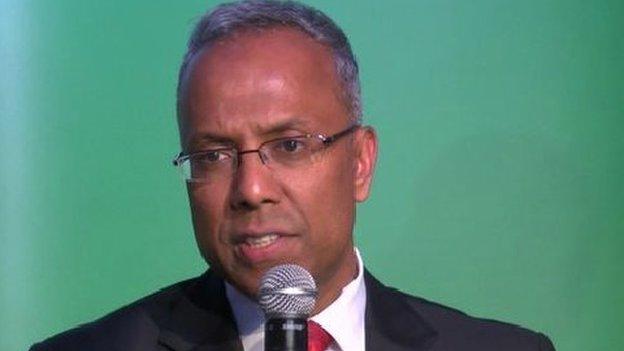
- Published23 April 2015
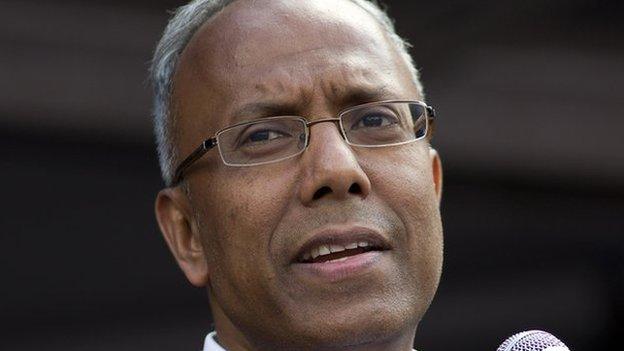
- Published7 July 2015

- Published30 August 2014
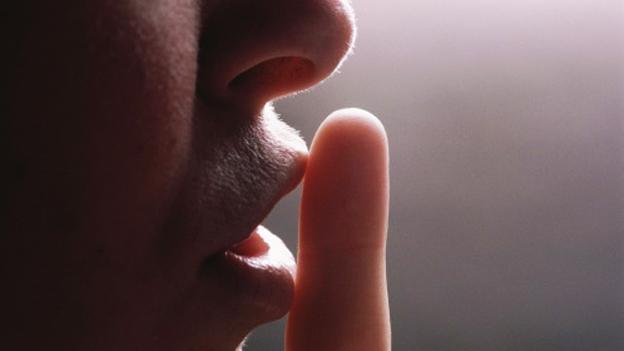
- Published16 March 2016
